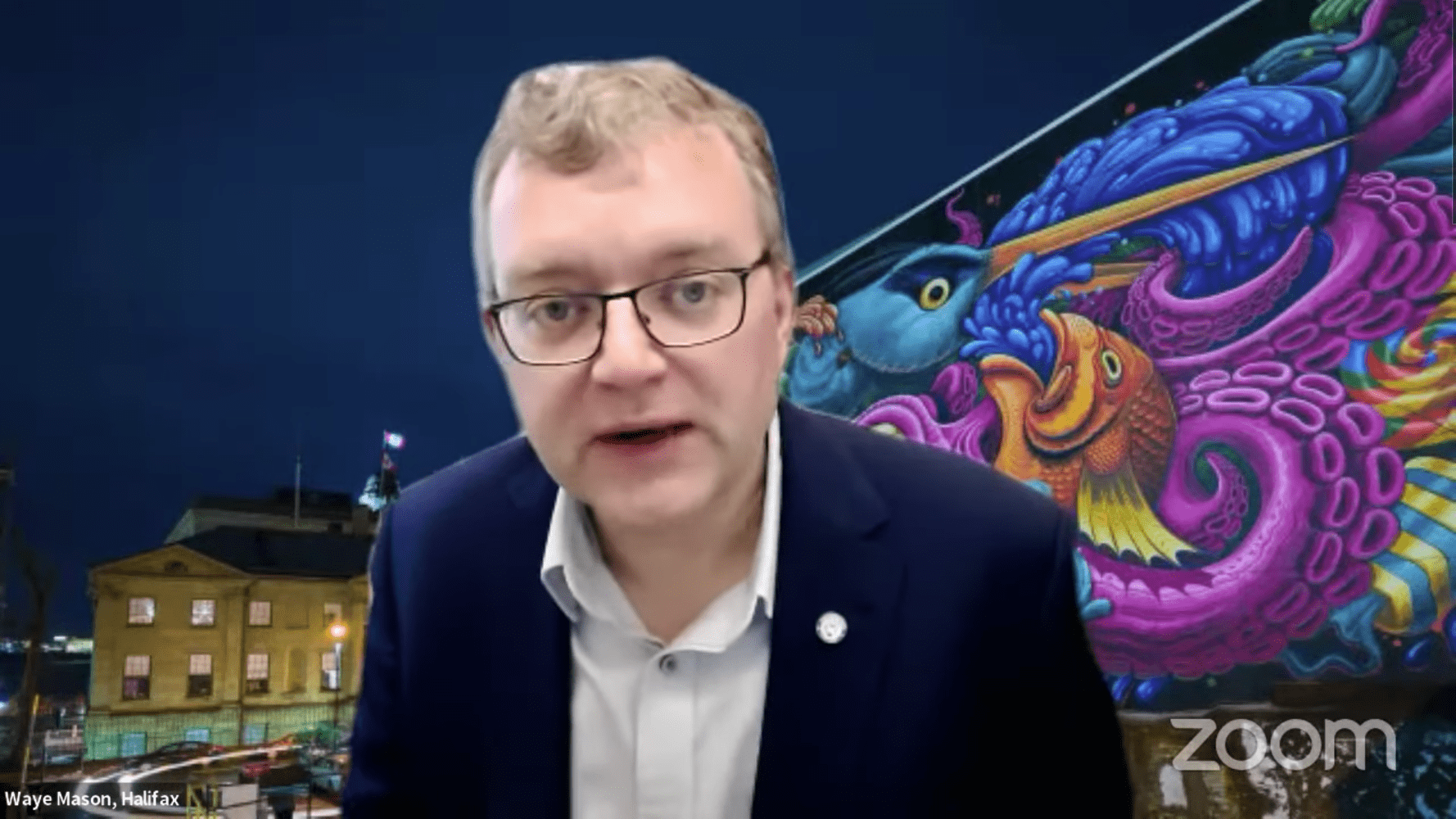Land acknowledgement added to Halifax Regional Council agendas
New policy recognizes Mi'kmaw traditional territory, aims for reconciliation

caption
Coun. Waye Mason speaks during an executive council meeting on Monday.Halifax Regional Council must now include a formal land acknowledgement in all official agendas.
A motion was passed unanimously during Monday’s executive standing committee meeting.
District 7 Coun. Waye Mason, who brought the motion forward, said the policy should be official as it’s already common to read the acknowledgement in most government settings.
Land acknowledgements are based on traditions carried out by Indigenous communities in Canada. This is a formal statement that recognizes the Mi’kmaw Nation and its lasting relationship with its traditional territory in Nova Scotia.
“I think it’s appropriate, respectful and it brings our official rules in line with what many of us are already doing at the standing committees and council already,” said Mason,
Rosalie Francis feels “very proud,” when she hears a land acknowledgement.
“I feel like we’re headed in the right direction with respect to reconciliation and better relationship building with Canadians and government,” said Francis, a Mi’kmaq lawyer and member of the Sipekne’katik Mi’kmaq First Nation community.
“When you hear a land acknowledgement, all of a sudden there becomes a broader awareness of indigenous people in their lands and territories. And I think that’s really important when we’
re looking at reconciliation.”
On June 21, 2021, the Halifax Regional Municipality officially formalized a written land acknowledgement statement. The statement will be written as:
“The Halifax Regional Municipality is located in Mi’kma’ki, the ancestral and traditional lands of the Mi’kmaq people. The Municipality acknowledges the Peace & Friendship Treaties signed in this Territory and recognizes that we are all Treaty People.
Today, making a respectful Land Acknowledgement remains a way to express one’s gratitude and respect to Indigenous peoples for being stewards of the land we live and work on, and is an important step in reconciliation.”
“It’s about mutual respect and it’s about really creating an understanding of the past and how we’ve gotten to where we are today,” said Francis. “I think it also becomes relevant today because we have so many outstanding Indigenous land title issues that have never been addressed by Canada.”
On Dec. 8, 2015, following the report and recommendations of the Truth and Reconciliation Commission and various groups, including the Federation of Canadian Municipalities, Halifax Regional Council passed a statement of reconciliation. This was created to support the municipality’s work with Mi’kmaq and urban Indigenous communities.
“First, the government needs to understand that they have a duty to consult on certain issues,” said Francis. “Nonetheless, they need an internal review to say ‘how will this be relevant to Indigenous people in a way that allows them to be included in the dialogue and to make space for their position on that issue?’ ”
Halifax Regional Municipality is found in the traditional territory of the Mi’kmaw Nation. This territory is called Mi’kma’ki and includes Nova Scotia, New Brunswick, Prince Edward Island, parts of Newfoundland and the Gaspé region in Quebec.

